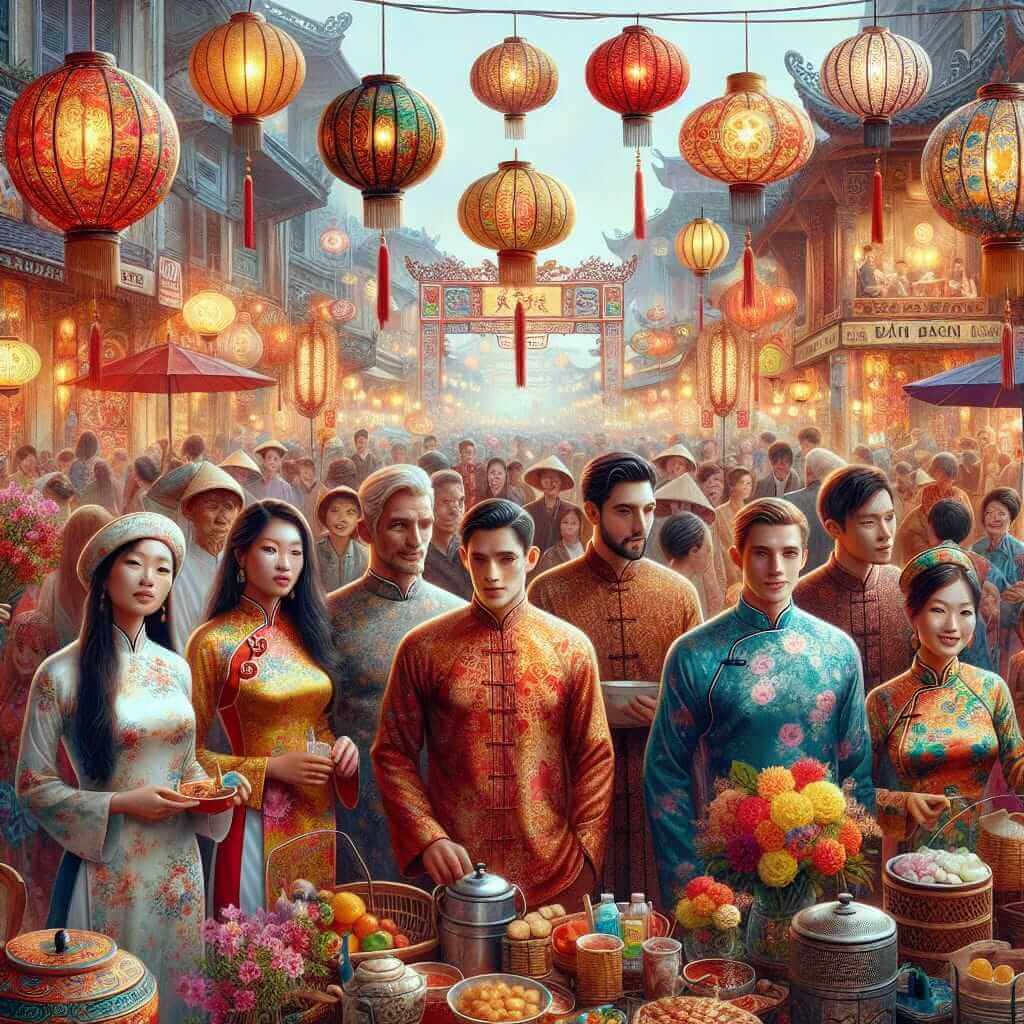The IELTS Speaking Test is designed to assess your use of spoken English. It is divided into three parts:
- Part 1: Introduction and Interview – In this part, the examiner will ask you general questions about yourself and a range of familiar topics, such as your home, family, work, studies, and interests.
- Part 2: Long Turn – You will be given a cue card with a topic and some points to cover in your talk. You will have one minute to prepare and then you must speak for around two minutes.
- Part 3: Two-way Discussion – The examiner will ask you some more abstract questions that are thematically linked to the topic in Part 2.
When answering these questions, examiners assess your fluency, coherence, lexical resource, grammatical range and accuracy, and pronunciation.
Common Questions about “Describe a Festival You Enjoy”
This type of question often appears in the IELTS Speaking Test. Examiners favor such questions because they allow candidates to talk about personal experiences and cultural knowledge. We’ll explore potential questions and responses you can practice.
Part 1: Introduction and Interview
Possible Questions
- Do you like festivals?
- What is your favorite festival and why?
- How do people in your country celebrate this festival?
Sample Response for Part 1
Question: What is your favorite festival and why?
Sample Answer: My favorite festival is Tet, the Vietnamese Lunar New Year. I enjoy it because it is a time for family reunions and festivities. We prepare special foods, wear traditional clothes, and visit relatives. The atmosphere is vibrant and full of joy, which makes it a delightful experience.
Part 2: Long Turn
Cue Card
Describe a festival you enjoy. You should say:
- What the festival is
- How it is celebrated
- Why you enjoy the festival
- And explain what makes it special
Sample Answer
One festival I really enjoy is Tet, which is the Vietnamese Lunar New Year. Tet usually falls in late January or early February, depending on the lunar calendar. It is the most important and widely celebrated holiday in Vietnam.
Tet is a time for family gatherings, when people travel from all over the country to reunite with their loved ones. The preparations for Tet begin a week before the actual New Year’s Day. People clean their houses, cook special festive foods like Banh Chung (sticky rice cake) and decorate their homes with peach blossoms and kumquat trees.
<
On New Year’s Eve, we stay up late to welcome the New Year with fireworks and various traditional ceremonies. During the first three days of the new year, we visit relatives and friends, exchange gifts, and give “lucky money” to children and elders.
I enjoy Tet because it brings the entire family together, and the sense of community and belonging is unparalleled. The traditional customs and foods are not only delicious but also signify prosperity and good luck for the upcoming year. This festive spirit and the cultural heritage it represents make Tet very special to me.
Follow-up Questions
-
What other festivals are celebrated in your country?
- Other festivals in Vietnam include the Mid-Autumn Festival and Hung Kings Temple Festival. Each has its unique traditions and cultural significance.
-
How do you think festivals enhance cultural traditions?
- Festivals help preserve cultural traditions by bringing communities together to celebrate their heritage through rituals, music, dance, and food. They also educate younger generations about their cultural identity.
Part 3: Two-way Discussion
Sample Questions and Responses
Question: How have festivals changed in your country over the years?
Sample Answer: Festivals in my country have evolved significantly over the years. While the core traditions remain the same, modern influences like technology and social media have changed the way festivals are celebrated. For example, people now share their celebrations online, which spreads awareness and attracts tourists. Additionally, commercial aspects, like sponsorships and advertisements, play a larger role today than they did in the past.
Question: Do you think the way people celebrate festivals is influenced by globalization?
Sample Answer: Absolutely. Globalization has brought about a blending of cultures, and as a result, many festivals now include elements from other cultures. For instance, in urban areas, you might see Halloween being celebrated, which was not traditionally observed in Vietnam. This cultural exchange enriches local festivals but also poses the risk of diluting native traditions.
Important Vocabulary and Phrases
- Festive foods – Special dishes prepared during festivals.
- Traditions – Customs or beliefs passed down through generations.
- Lucky money – Money given in red envelopes, symbolizing good luck.
- Prosperity /prɒˈspɛrɪti/ – Wealth and success.
- Cultural heritage – Traditions, values, and artifacts handed down by previous generations.
Example Usage
- Festive foods like roasted turkey are typical during Thanksgiving in the United States.
- Traditions like setting off firecrackers are an integral part of Chinese New Year celebrations.
- Giving children lucky money during Tet is believed to bring them good fortune.
- Celebrating festivals together strengthens the community’s cultural heritage.
Examiner’s Tips for High Scores
- Be Coherent: Ensure your ideas flow logically from one to another. Use linking words and phrases like “moreover,” “furthermore,” and “in addition.”
- Show Range of Vocabulary: Use a wide range of vocabulary but ensure it fits the context.
- Correct Pronunciation: Focus on pronunciation to be clear and understandable.
- Confidence is Key: Speak confidently and naturally. Avoid memorized answers; be authentic.
By incorporating these elements, you can significantly improve your chances of achieving a high score in the IELTS Speaking Test.